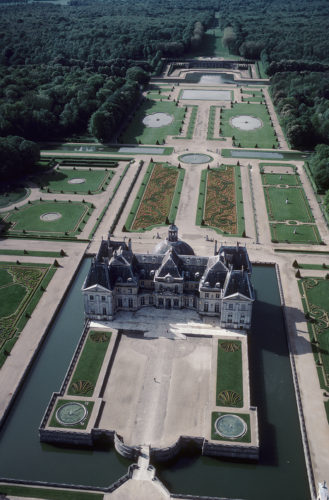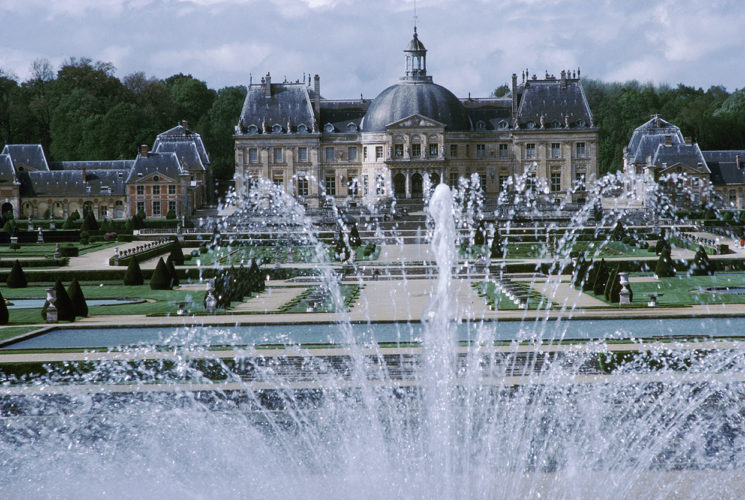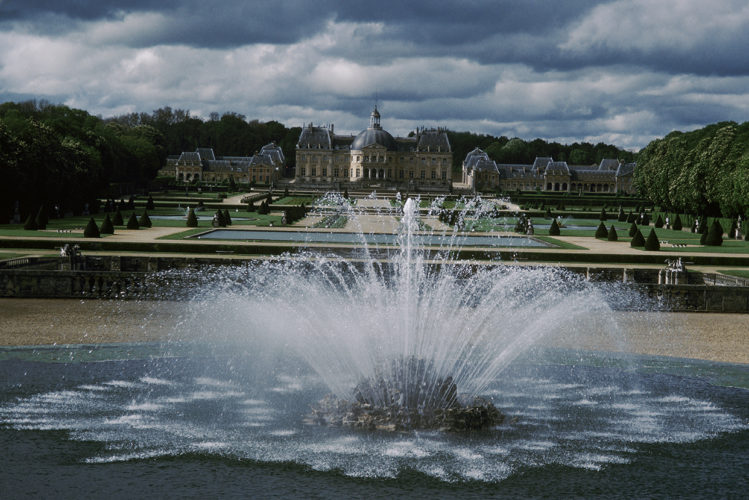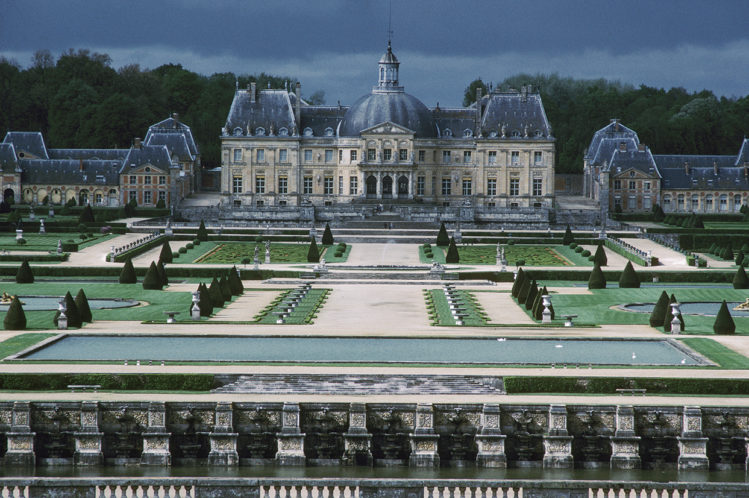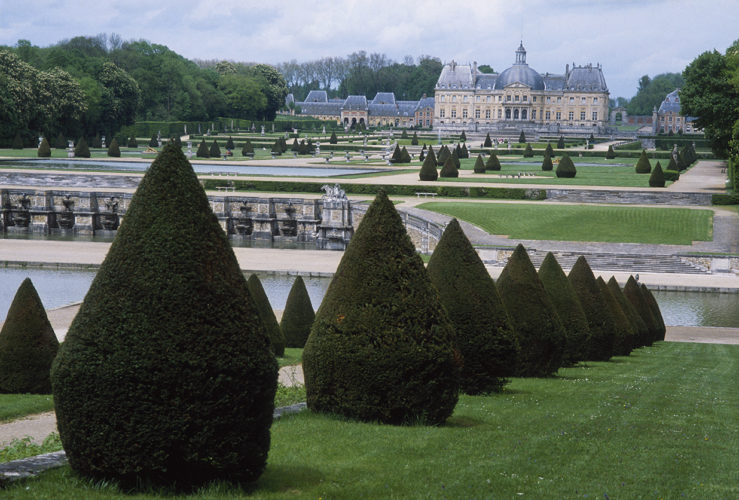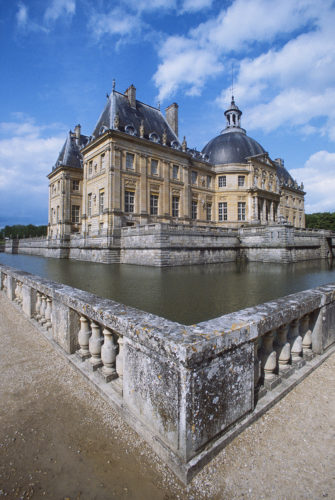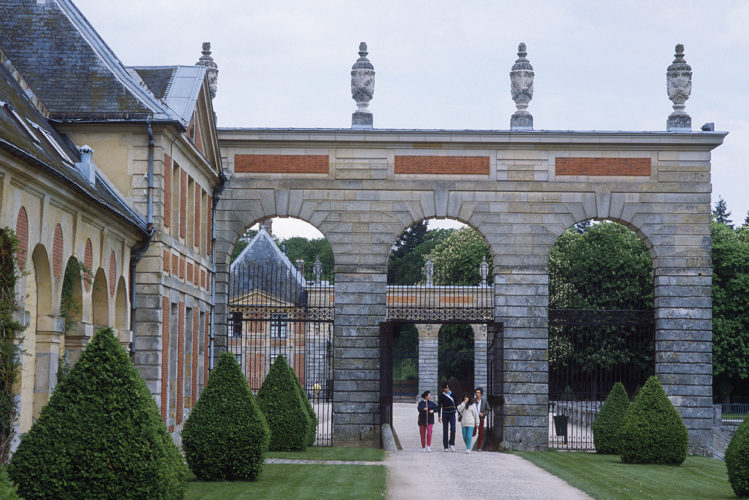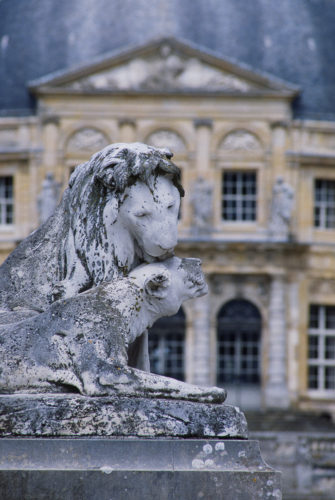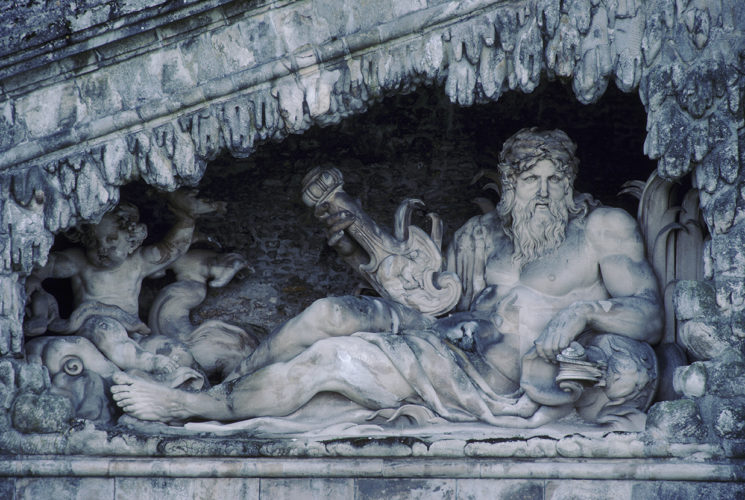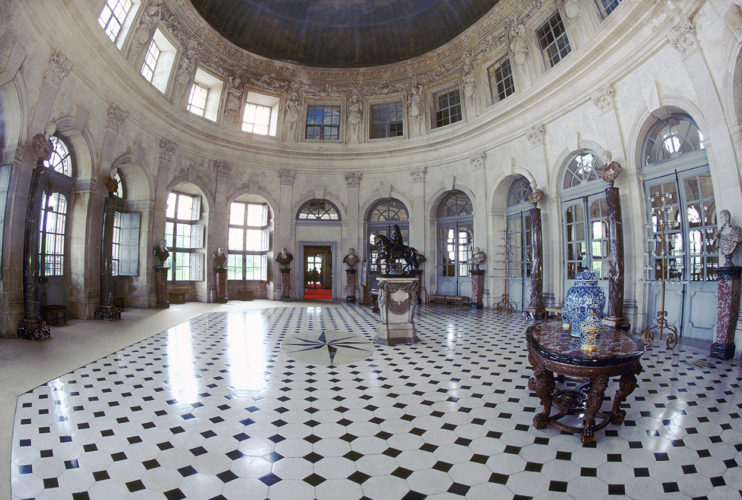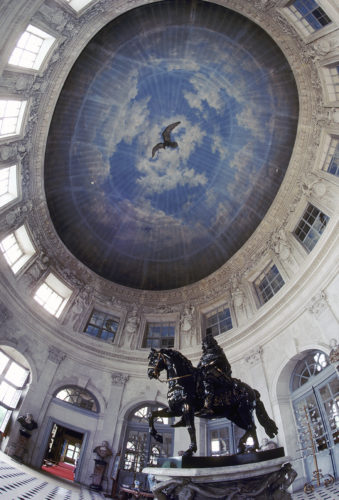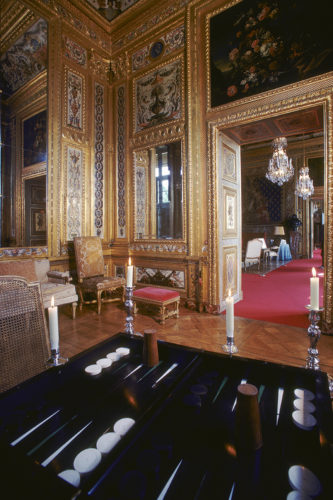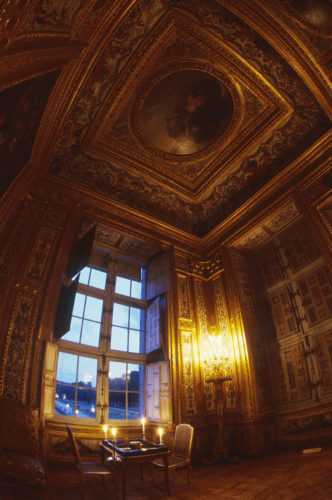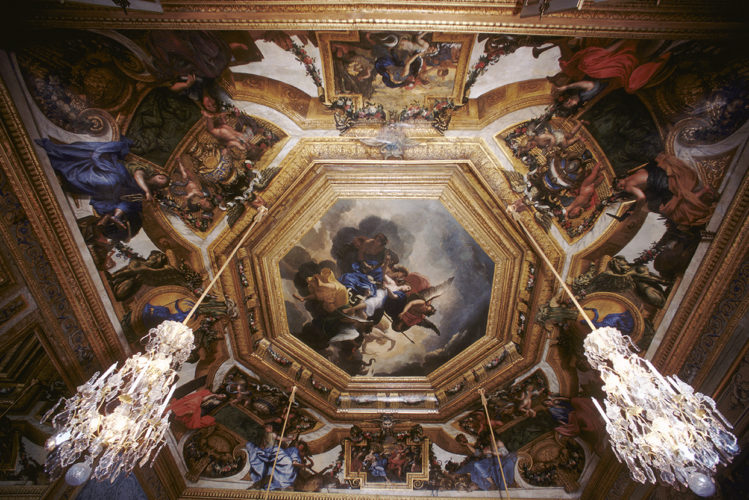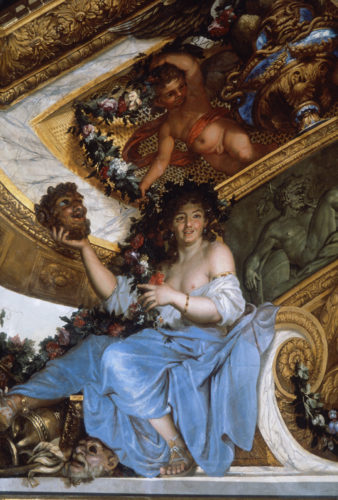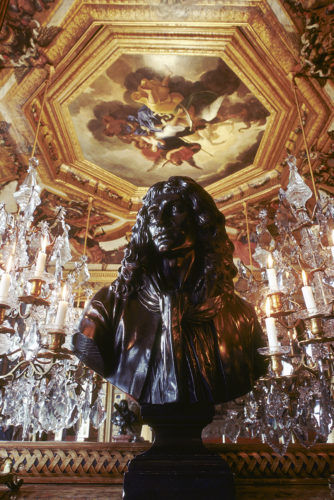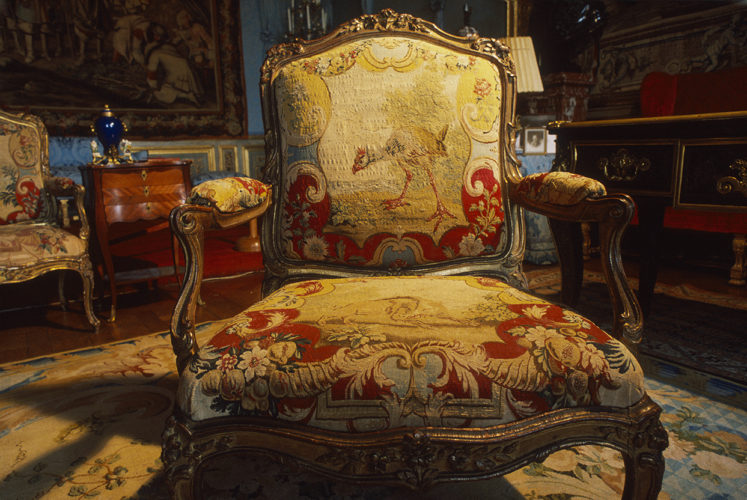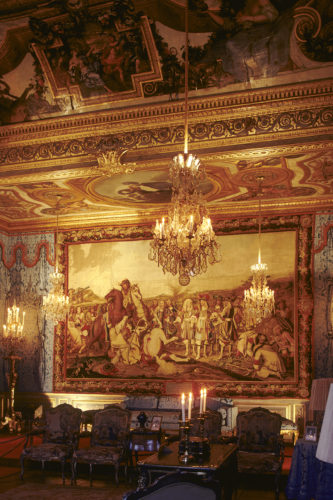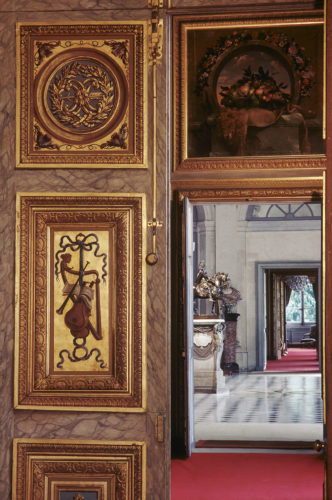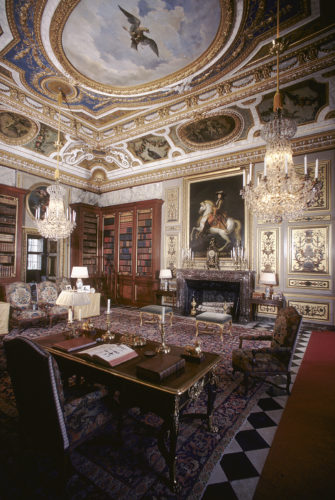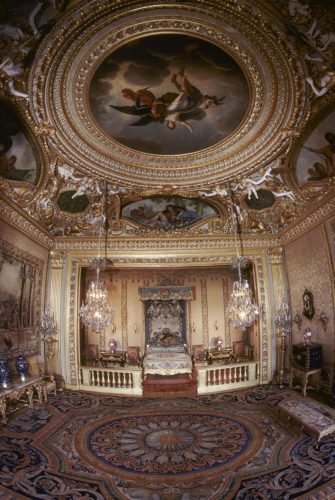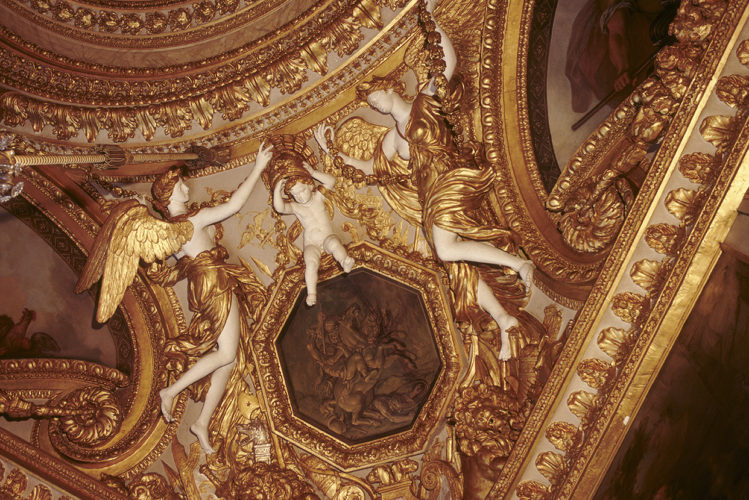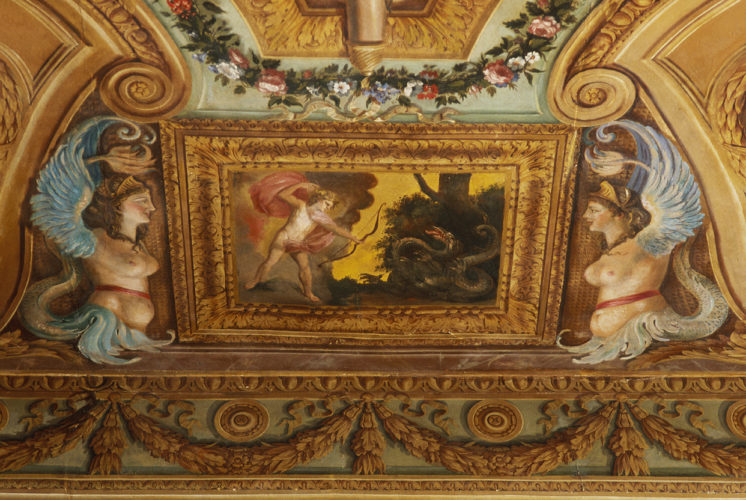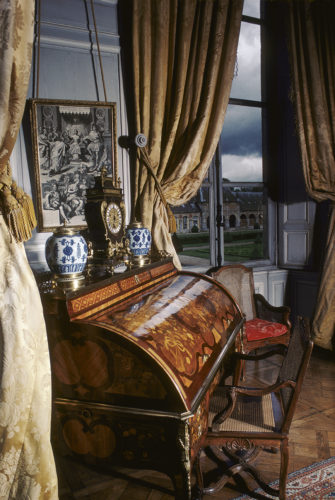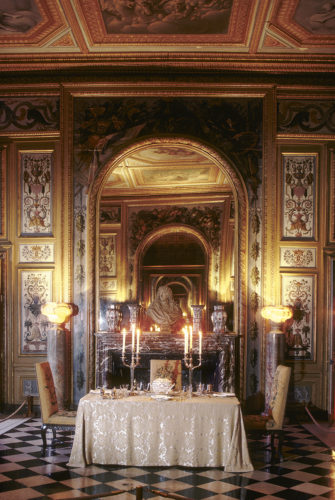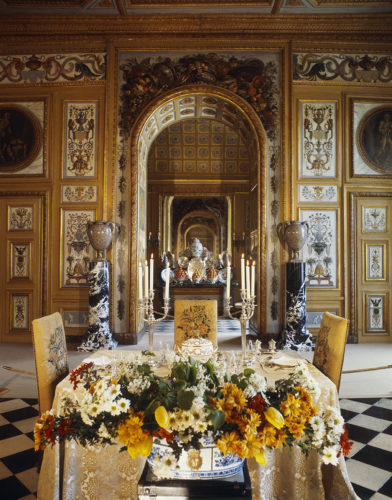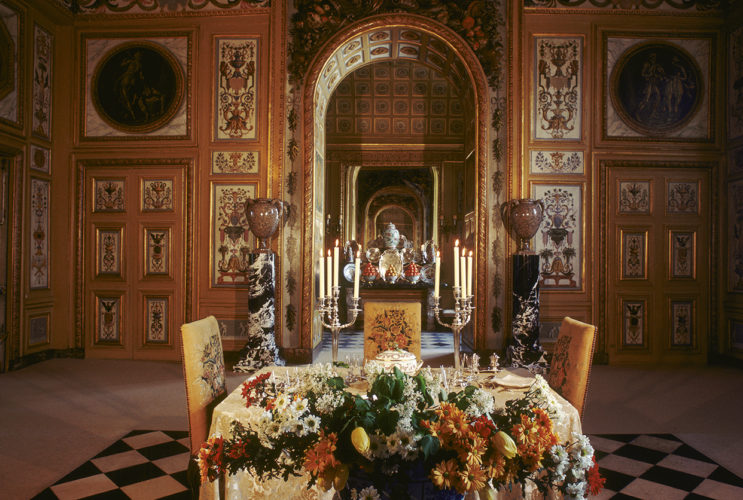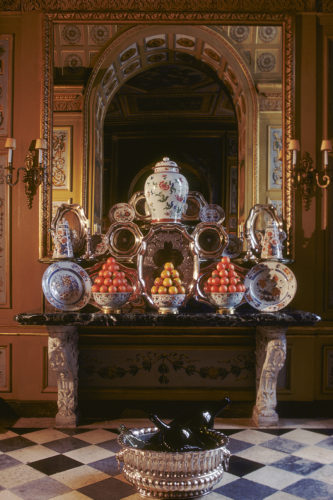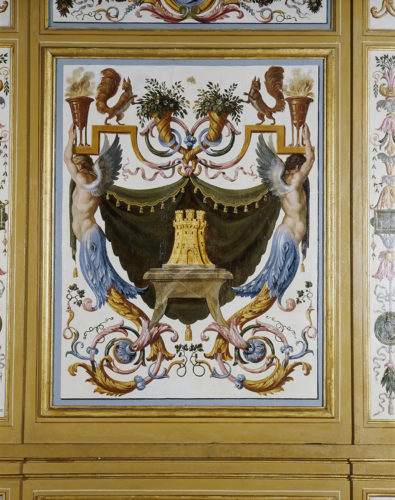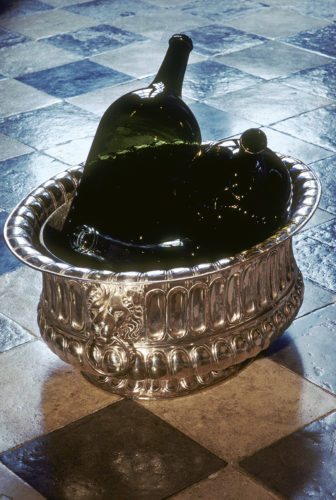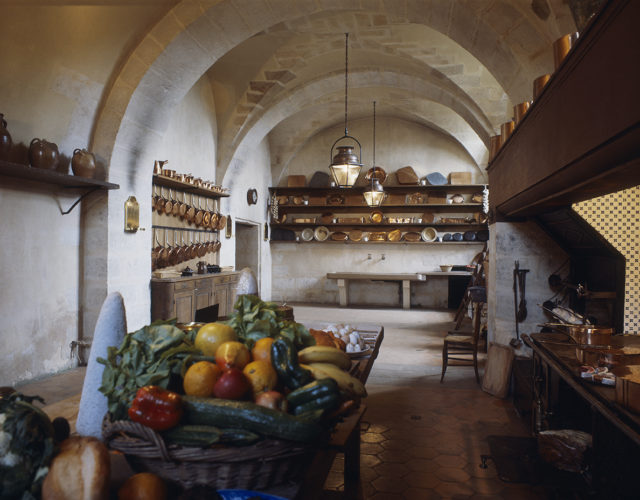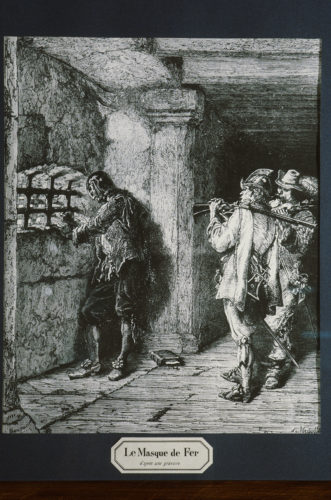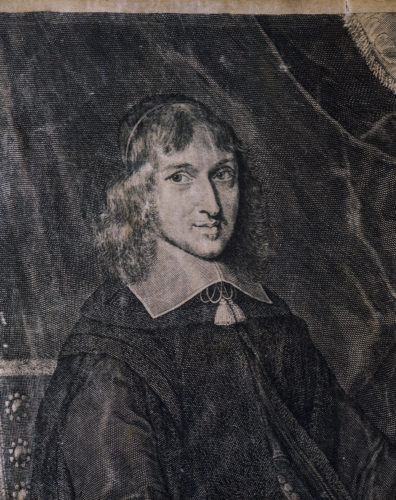Pierre Boulat
Vaux-le-Vicomte
It was supposed to be the grandest housewarming in history.
The host was Nicolas Fouquet, Superintendent of the Finances of France, the richest and most powerful subject of the young King Louis XIV. With his new castle, he was going to offer the king and the world a supreme example of what riches and power could do in the realms of beauty and taste and well-tempered magnificence.
While the castles at the time were old castles expanded from generation to generation, Vaux was built all of a piece from a unified design conceived by the noted architect Louis Le Vau. It was a huge country mansion, open and inviting, designed for entertainment on the largest possible scale. The interior had been designed and executed by Charles Le Brun who had left a touch of sparkling luxurious elegance on everything: the 250 tapestries, the painted wall panels and gilded moldings, the carved and embroidered furniture, the chandeliers, the busts of Roman emperors. From the windows and the terrace on the far side of the building, the eye could see a splendid garden of a new design, a man-made landscape, designed by André Le Nôtre in which everything, including the chateau was integrated.
On August 17, 1961, the King, the Queen and all the gratin of the court attended the fabulous inauguration. Louis XIV was impressed by the “Fête de Vaux”, as its creator had intended, but beneath the smiling exterior he knew how to maintain on all occasions, he was boiling with jealousy and rage. For some time he had been poring over the account books of the state and Jean Baptiste Colbert, who had only recently become Fouquet’s second in command, had been showing him in detail how enormous streams of public money were pouring into the superintendent’s hands.
Three weeks after the Fete, he summoned Fouquet and had him arrested and driven off to the first of the dungeons in which he was to spend the rest of his life.
Vaux, which had come fully to life for one glorious evening, was left to wither in obscurity. until 1875, when a young man bought it and spent the rest of his life restoring it. His great grand-son, count Patrice de Vogüe is now in charge of the castle


